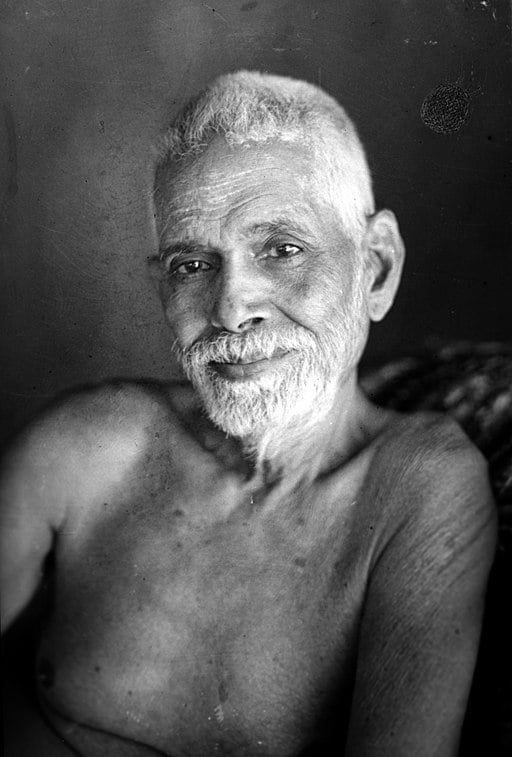
{*Did you know you can write on Elephant? Here’s how—big changes: How to Write & Make Money or at least Be of Benefit on Elephant. ~ Waylon}
~
“In the depth of winter, I finally learned that within me there lay an invincible summer.” ~ Albert Camus, Author and Philosopher
~
For two decades, winter was all I knew.
I lived in a cold world, exiled from my heart, where nothing flowered.
I didn’t know spring; that is, I wasn’t aware of the latent potential within me that was already beginning to blossom beneath the surface. Rather, I believed that I was deficient, lost, incapable, and quite frankly, a little too far gone.
Little did I know at the time, certain events would conspire to pull the ground from under my feet and thus destabilize my entire foundation.
Later on, I would come to realize that this is often the case for many people who feel equally drawn to the practice of self-inquiry for the purpose of ultimate realization of what we call Self and reality.
Not too long into my own journey, I came across the name Sri Ramana Maharshi, an Indian Sage and Guru who was born on December 30, 1879 in Tiruchli, India. Sooner or later, I began to inquire about him and his life.
Born in Venkataraman Iyer, at the age of 16, he had a near-death experience and subsequently encountered his own true nature beyond name and form. He referred to this as the “I” or “Self” that is self-luminous and pervades the whole of existence. As a result, he achieved a state of mind known as Iswara or jnani.
After leaving the home of his uncle, he headed for the holy mountain of Arunachala. There, he became a sannyasin and remained there for the rest of his life. In Sanskrit, “sannyasa” or “sanyasi” refers to a life of renunciation, which involves abstaining from worldly goods and affairs.
During his time, Ramana drew a slew of devotees to him. These followers came to him in order to catch a glimpse of their own God-like nature. Not long after, an ashram was built and visitors would come to receive “spiritual instruction” by sitting in his company or by asking various questions about consciousness, the ego-mind, and spiritual practice for the purpose of attaining what eastern people term enlightenment.
One of the principle practices Ramana recommended to his devotees was self-inquiry. This practice was meant to draw awareness away from the mind and direct it toward the inner awareness of “I.” The purpose of this practice was to begin to see the unreality of what we call the “ego-mind.” By understanding the “I”-thought as a byproduct of imagination, only self-awareness remains, which necessitates self-realization or liberation.
As stated in previous articles, it is my humble opinion that much of our suffering stems from self-ignorance, which then gives rise to faulty beliefs that are imbued with the notion that we are limited, in bondage, or somehow less divine than we truly are. We carry all kinds of cognitive distortions about ourselves (and others) that cause a myriad of needless suffering and make us forget that we are all different faces of the one Source, and that our very existence is nothing short of God-like.
We forget that we are more than our humanity; that is, while the body and mind are each manifestations of the miraculous, we are so much more than a finite entity. This is why I firmly believe that we need the teachings of these great sages and philosophers in our modern times.
The world tells us in oh-so-many ways that we are time-bound and therefore limited, that our sense of selfhood is qualified by the characteristics of the personality and the various transitory roles we play. It also tells us that our worth comes from what we do instead of what we are, which is anything but transitory.
Indeed, our entire so-called “civilization” thrives on the denial of our true divine nature as emanations of the Source of creation. This, I believe, is partially why mental health issues like depression and anxiety are sky-rocketing today. People, whether consciously aware of it or not, feel divorced from their authenticity and our of alignment with all of nature. Instead, they are forced to chase material security at the expense of rest, reflection, and relaxation and live lives of quiet desperation.
In his book, Be As You Are: The Teachings of Sri Ramana Maharshi, Ramana himself explains that self-realization is a vital undertaking and that without it, we cannot possibly understand the world because the world itself is a projection of our own consciousness. In fact, he argues that our own self-realization is by far the most important gift we could offer.
Below are nine of my most favorite quotes from various chapters of the book, Be As You Are: The Teachings of Sri Ramana Maharshi, with some side-notes and commentary from me, the author, here and there.
1. “Consciousness is indeed always with us. Everyone knows ‘I am’. No one can deny his own being. The man in deep sleep is not aware; while awake he seems to be aware. But it is the same person. There is no change in the one who slept and the one who is now awake. In deep sleep he was not aware of his body and so there was no body-consciousness. In the wakeful state, he is aware of his body and so there is body-consciousness. Therefore the difference lies in the emergence of body-consciousness and not in any change in the real consciousness.”
2. “The idea of time is only in your mind. It is not in the Self. There is no time for the Self. Time arises as an idea after the ego arises. But you are the Self beyond time and space. You exist even in the absence of time and space.”
This, by the way, can be felt in deep meditative states where time and space seem to disappear. Nevertheless, the sense of “I,” or presence, remains. Therefore, this is self-evident. That is the felt experience of the Self that Ramana was talking about. It is not “boring.” In fact, it is far, far from it! This is the Self from which all words, music, emotions, and thoughts emerge. It is the Source of all, and it is where we came from and where we shall return. However, we grossly overlook it in our everyday life.
3. “The ego-self appears and collapses and is transitory, whereas the real Self is permanent. Though you are actually true Self, you wrongly identify the real Self with the ego-self.”
Ramana was saying that we confuse our personality, which is a certain pattern of brain activity, genetics, and thoughts (that is, the “ego-self”) for who and what we are. Once again, our nature is not transitory; it doesn’t come and go. It isn’t qualified or coloured by the roles we play in society. Rather, it is the Source of all creation, from which all things emerge.
4. “Take care of yourself. Let the world take care of itself. See your Self. If you are the body there is the gross world also. If you are spirit all is spirit alone.”
Ramana was suggesting that the world is simply a projection of our state of consciousness.
5. “Truly there is no cause for you to be miserable and unhappy. You yourself impose limitations on your true nature of infinite being and then weep that you are but a finite creature. Then you take up this or that spiritual practice to transcend the non-existent limitations. But if your spiritual practice itself assumes the existence of the limitations, how can it help you transcend them?”
6. “There is no goal to be reached. There is nothing to be attained. You are the Self. You exist always. Nothing more can be predicated of the Self then it exists.”
Ramana was suggesting to his followers, avid seekers, that enlightenment is not a destination that we arrive at. Rather, it is embedded in our nature as the Self. We only simply have to recognize this self-evident fact. We are never far from the Self, for it is closer to us than the breath. Knowing this is liberation. It is itself enlightenment.
7. “Self-realization is the best help possible. But there are no others to be helped. For a realized being sees only the Self, just like a goldsmith estimating the gold in various items of jewellery sees only gold. When you identify yourself with the body then only the forms and shapes are there. But when you transcend your body the others disappear along with your body consciousness.”
Ramana was suggesting here that when we transcend the notion that we are a limited body, we do not see others as limited. Instead, we see them as a projection of our own true nature as the Self beyond shape and form. We see their boundless divinity as we see our own. On the other hand, when we are aligned with our finite nature as a physical being, we impose those limitations onto others. As within, so without. Self-realization is a gift because when we recognize our own inherent liberation beyond a name and a role we play, we can treat others the way we all deserve to be treated because, beneath all of the seeming differences, we know we are emanations of the same Source. Therefore, there are no “others.” Instead, we recognize Oneness.
8. “’I exist’ is the only permanent self-evident experience of everyone. Nothing else is so self-evident as ‘I am’. What people call self-evident, that is, the experience they get through the senses is far from self-evident. The Self alone is that. So do self-inquiry and be that ‘I am’ is the only thing to do. ‘I am’ is reality. I am this or that is unreal. ‘I am’ is truth, another name for Self.”
See this for yourself. Even if your memory was wiped out and you had amnesia, there would still be a knowing, a feeling, beyond the mind that “I exist.” This is the same in everyone, no matter their mental state. The question is: what is this experience we all share? If it is not qualified or dependent on the state of mind, it must be beyond the personality.
Furthermore, what we call “self-evident” through the faculty of the five senses is dependent on the person perceiving the senses. The senses themselves are limited, and what we perceive isn’t necessarily what it appears to be. The senses are limited. We cannot perceive all that is. Only the experience of “I am” is real and indisputable.
9. “That in which all these worlds seem to exist steadily, that of which all these worlds are a possession, that from which all these worlds rise, that for which all these exist, that by which all these worlds come into existence and that which is indeed all these—that alone is the existing reality. Let us cherish that Self, which is the reality, in the Heart.”
This is similar to what was expressed in the above quote, except that Ramana wasn’t focusing on a shared experience. It is also the opposite of Descartes idea of cogito, ergo sum, which is Latin for, “I think therefore I am.” We can doubt everything except “I exist.” This understanding is beyond the cognitive faculties. It comes from a knowing that sits in the Heart. That is the Self.
~
{Please consider Boosting our authors’ articles in their first week to help them win Elephant’s Ecosystem so they can get paid and write more.}
 Share on bsky
Share on bsky

Read 8 comments and reply